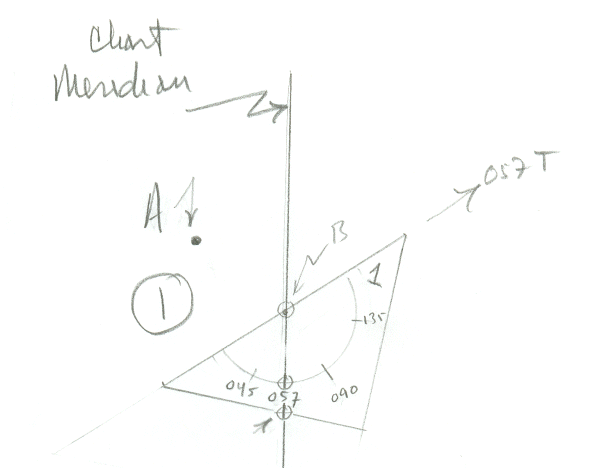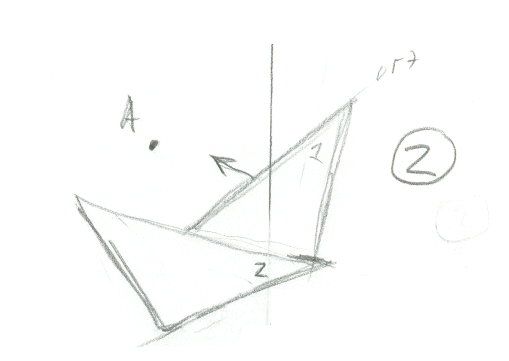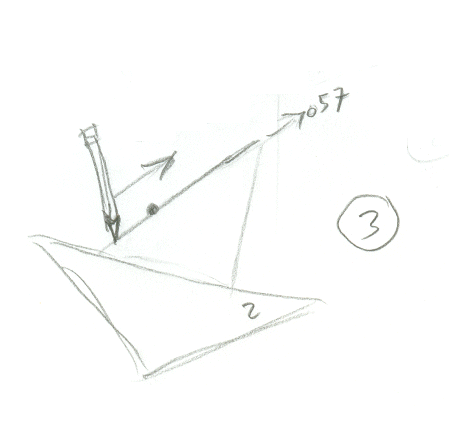Problem: Draw a line through Point A in direction 057 T.
Solution:
Step 1. Choose any point B on the nearest meridian line to point A, and orient triangle 1 (either one of them, they are the same) so that it points in direction 057 T. This will have the center point of the triangle on the meridian and then you rotate the triangle so the meridian crosses the 057 line on the protractor printed on the triangle. Double check by just looking at its orientation that it is about right... ie that you did not just line up some numbers without thinking of what the orientation was supposed to be. There are several scales on the triangle and you may have grabbed the wrong one if you do not look at the edge crossing the meridian to be sure it makes sense. You can do this alignment very precisely, relatively easily within ± 0.5°.
Note you are always using the degree marks on the outside edge of the triangle shown above. The inside scales are just there to show you the different orientations and subsequent meanings of the outside scales.

Step 2. Holding triangle 1 firmly in place, align triangle 2 under it so you can slide 1 over to point A as shown below.

Step 3. Slide 1 over to Point A and then draw in your line. If you have any doubt that you slipped some, then slide 1 back to the meridian to check it out.

-------------------------
Reading the bearing of a line on the chart is just the opposite. Align one triangle with the bearing line, then put another under it to slide it to the nearest meridian to read the bearing.
-------------------------
Hope that helps for now. We have triangles for sale in our online Accessories Catalog. They cost $14.95 each.

No comments:
Post a Comment